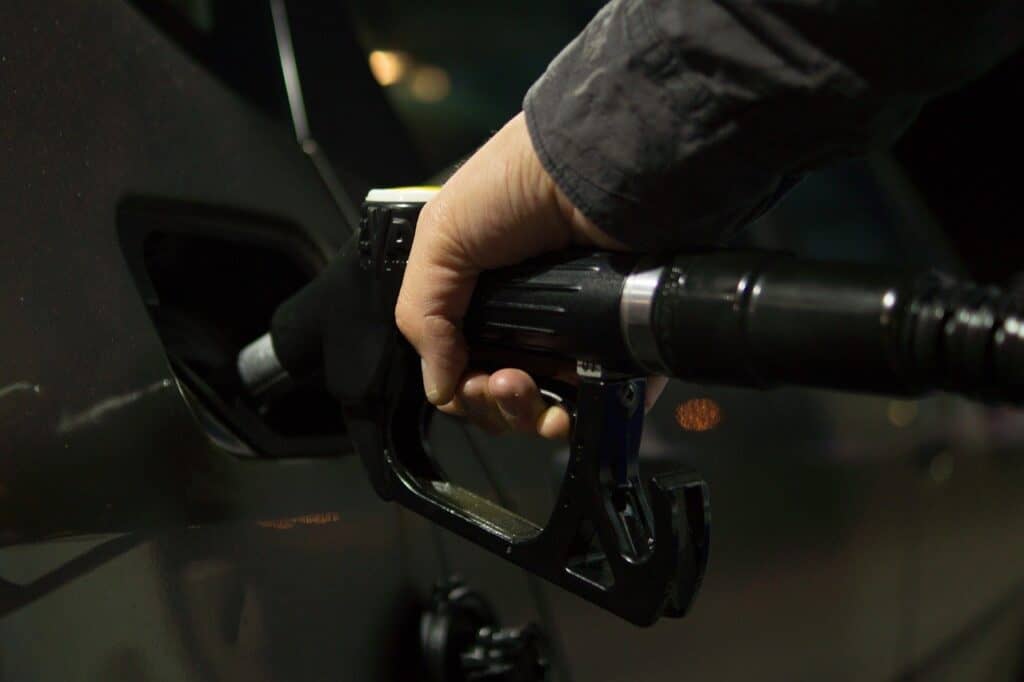Fiberglass is one of the most popular insulating materials used in house construction, today. It’s a very low-cost material and it’s easy to stuff into spaces between interior and exterior walls and mute the radiation of heat from inside your home to the outside world. It is also used in boats, aircraft, windows, and roofing. However, is it possible that this insulating material might be able to catch fire and put your home at risk?
Fiberglass is not flammable, as it was designed to be fire-resistant. However, that doesn’t mean that fiberglass won’t melt. Fiberglass is rated to withstand temperatures up to 1000 degrees Fahrenheit (540 Celsius) before it will melt.
So, while fiberglass probably won’t start a fire in your home, if the fire were to be hot enough, it might add additional fuel to the flames. Let’s take a closer look at what fiberglass and how it reacts to heat.
Your # 1 priority is keeping your family safe. As a firefighter, I recommend everyone has updated smoke detectors that don’t require battery changes, like these ones from Kidde, a fire extinguisher, like this one from Amerex, and a fire escape ladder if you have bedrooms above the first floor, I recommend this one from Hausse.
Also read: What Makes Something Flammable?
What Is Fiberglass?

Fiberglass is actually a trademark.
But rather like Hoover or Kleenex, also both trademarks, it has become associated in the public mind with one thing – that is the pink insulating material used in walls and to line the attic of the average house as an insulating material.
(Though it is actually used in other forms for other applications as well.)
In reality, as the name suggests, fiberglass is made out of glass and it consists of superfine filaments (or “fibers” if you will). The insulating material is made up of filaments scattered at random on top of each other, but it is possible to weave these fibers together to create other more unusual applications of fiberglass.
Depending on how the fiberglass will be used then there may be other materials added to the mix to change the strength and durability of the end product.
One popular example of this is fiberglass resin which can be painted over a surface to reinforce it but it may also be true of a fiberglass mat or sheet (often used in the construction of boat hulls or surfboards).
Fiberglass is often confused by people with carbon fiber, but the two materials are not in the remotest bit chemically similar.
Even though they make look similar in certain applications, carbon fiber is made out of carbon, as the name suggests, glass, on the other hand, is made out of Silicon Dioxide and contains no carbon at all.
Also read: Is PVC Pipe Flammable? Is it Fire Resistant?
Does It Catch Fire?
In theory, fiberglass can melt (doesn’t really burn), but only at very high temperatures (above an estimated 1000 degrees Fahrenheit).
Melting glass and plastic is not a nice thing and it poses severe health risks if it splashes on you. It can result in far worse burns than a flame could bring and may adhere to the skin requiring medical assistance to remove.
So, if the fiberglass near you is melting, move away, and either use a fire extinguisher on it or call for help.
If you are ever in doubt of your ability to tackle a blaze, it’s always best to call the professionals, never take an unnecessary risk yourself.
Also read: Is Paint Thinner Flammable? Technically No…
Does It Burn Easily?
Fiberglass does not burn easily and will actually melt in most cases, but only at very high temperatures.
This is good news for your home, but it does mean that you need to be careful about how you dispose of fiberglass – particularly because it is highly polluting.
Also read: Is Epoxy Flammable? Yes and No…
Is It Fire Resistant?
Fiberglass, especially in the form of insulation, was designed to be fire-resistant and does not catch fire easily, but it can melt.
Take a look at this video testing the fire resistance of fiberglass and other insulating materials:
However, fiberglass can melt (though only at very high temperatures) and you wouldn’t want to coat many things in fiberglass to try and prevent them from burning.
Also read: Are Mothballs Flammable or Combustible?
At What Temperature Will It Burn?
Controlled tests show that the temperature of ignition for fiberglass is around 1,112 degrees Fahrenheit. But this will depend on the type and conditions.
As there are many different forms of fiberglass, it would be reasonable to expect some variation on this temperature and it is certainly not an absolute figure, however, it’s good enough to assure us that the odds of fiberglass catching fire in ordinary use are unlikely.
Also read: Is Styrofoam Flammable? [Polystyrene]
What About Fiberglass Insulation?
Fiberglass insulation is not flammable. It will not melt until temperatures are over 1,000 degrees Fahrenheit (540 Celsius), and it will not readily burn or catch fire at low temperatures.
Also read: Are Spider Webs Flammable? Sorta…
Fiberglass Resin?
Fiberglass resin contains both polyester and epoxy resins, both of which can be flammable. Once the resin has set, it is unlikely to be flammable though.
There are different types of resins used for fiberglass and some forms can be flammable. So always check the safety sheet supplied with any product prior to assuming any heat-resisting or flammability properties.
Also read: Is Silicone Flammable or Fire Resistant?
Safety Note On Fiberglass
Fiberglass is not the safest of materials to work with. In fact, while it may not burn, it’s very hard to dispose of and ideally, it needs to be recycled.
Unfortunately, to recycle fiberglass in most areas – you need to crush it. That creates fine glass dust which is very dangerous, particularly if inhaled.
Both General Electric and Owens Corning are working on the problem of recycling more fiberglass and doing so more effectively, in order to preserve the environment and reduce the risks of the process to workers and the public alike.
Related Articles
House Fire Temperature: How Hot Does It Get?

